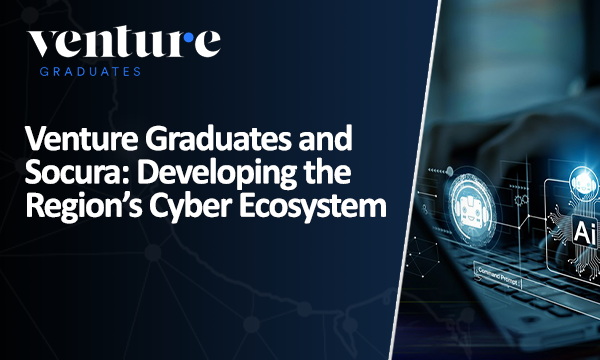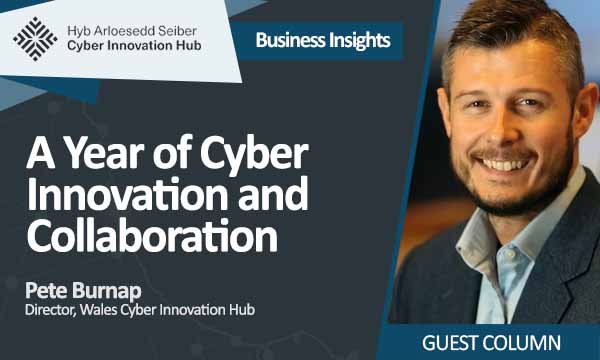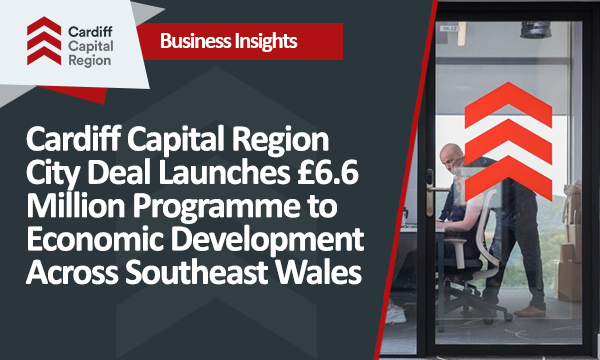‘Digital’ is revolutionising services and Industries across our region – and in our last feature, we explored the key drivers of this digital transformation across Artificial Intelligence, Compound Semiconductors, the Creative Economy and Cyber & Analytics. In this “Part 2” feature, we discover how digital is driving fundamental change in Energy & Environment, Fintech, Life Sciences and Transport & Engineering – completing a rounded view of the quantum digital leaps being made across the eight CCR priority sectors ….
Energy & Environment
Digital is an integral part of our transformation to green energy. Indeed, it’s a foundation stone of the pathway we are about to journey on towards a decarbonised and sustainable Cardiff Capital Region.
Without digital, it would be simply impossible to take the quantum leap we are about to make in the way we power our industry, fuel our transport, heat our homes, distribute and store our energy – and work in a more intelligent, future-friendly way.
Digital capabilities and networks are critical components of the low-carbon technologies that will put Fusion, Geothermal, Hydrogen, Marine, Solar and Wind at the core of our energy supply. Just name any green energy pilot, project or programme in CCR and you will detect a strong digital pulse running through it – from the Llynfi Valley mine-water project that’s become a demonstrator for the UK Government-led Smart System and Heat Programme, to the trailblazing Gas Turbine facility at Cardiff University.
Name any green energy pilot, project or programme and you will detect a strong digital pulse running through it
Digital is also at the forefront of transforming the energy efficiency of our buildings – helping power the fuel pumps, hydrogen boilers and solar panels that constitute the core of the forthcoming domestic refit – as well as joining up the many moving parts of the game-changing active buildings that turn homes and offices from energy consumers to energy providers. And when the South Wales Industrial Cluster (a partnership between Welsh industry, energy suppliers, infrastructure providers, academia, legal sector, service providers and public sector organisations) was awarded £1.5million from UKRI’s Industrial Decarbonisation programme this year, to map what is needed to support South Wales in becoming a net zero carbon region by 2050, it was clear that digital will be a glue for the many multi-layered collaborations that will be born in the next few years and decades.
The heart of the SWIC project is aimed at achieving net zero and at the same time, reversing the decline of heavy industry and creating economic prosperity for Wales. This will be done by developing a plan to preserve the existing 113,000 manufacturing jobs and potentially creating thousands of new skilled jobs by 2050. It’s safe to say that most of those new jobs (and a major percentage of the current roles) will be increasingly digital in nature – creating new digital talent pipelines as well as sustainable energy pathways that help ensure the wellbeing of future generations.
Fintech
Financial Technology is Digital Technology – and Fintech, along with Artificial Intelligence, is a priority sector built on the network speed, analytics, data processing capacity, robust security and almost endless capacity for multi-user collaboration that defines digital.
Given the strength and depth of our digital and cyber centres of excellence across the region, it’s little wonder that our fintechs are flying higher, further and faster than ever before – with established companies such as Admiral, GoCompare and Principality Building Society (as well as leading SMEs like CoinCover, Sonovate and Wealthify), being able to rely on the strong digital infrastructure that’s so essential to any fintech business.
Fintech is Digital Tech – and our digital centres of excellence are powering our fintechs to go higher, further and faster than ever before
That digital pedigree saw CCR invest in both FinTech Wales and its recently launched Foundry – and we have been delighted to see the Foundry’s first accelerator cohort group comprise some of the most exciting fintech ventures in the UK today, with each of those start-ups – Laytrip, Sero, ShipShape, Viaduct, Voltric, Wagonex, Yimba and Zing – all securing the funding and ongoing support they need in our region.
It’s clear that something very special is happening in our Fintech sector – with Yoello winning TechNation’s award for best British fintech, Delio being selected to join the 2021 FinTech Innovation Lab in New York; and a 20,000+ fintech talent pipeline estimated to come ‘online’ in the next few years. Unsurprisingly, the UK-government-sponsored Kalifa Report has identified Wales as a key fintech centre of the future – and that future is built on digital.
MedTech
This is a priority sector where we’ve focused specifically on medical diagnostics and devices, with key investments made in Creo Medical’s COVID-19 Cool Plasma Sterilisation Technology and Pharmatelligence’s Project Livingstone, a revolutionary analytical software product which enables pharma and medical companies to conduct complex scientific studies in hours instead of months.
All life science enterprises rely on digital technology to generate, store and process vast amounts of critical data
Our region is home to world-leading Medical Devices and Diagnostic companies, all of which rely on digital technology that generates, stores and processes vast amounts of critical data – be it the cutting-edge genomic research facilities at Cardiff University or the many projects (such as the revolutionary “clinic-on-the-wrist” technology) that are shaping the very future of life science electronics at the Compound Semiconductor Cluster.
Our aim is to thread these strands together into a thriving, R&D-led MedTech cluster, creating an ecosystem where businesses can work in tandem and deliver directly into the NHS, improving the health and wellbeing of the region as well as driving economic growth. Digital connectivity, processing and analytics is enabling us to achieve our ambition – powering the Life Sciences Hub that’s breaking down the barriers to innovation in the NHS, helping one of Europe’s largest organisations become more flexible, streamlined and patient-centric.
And the results are already becoming apparent within the NHS and healthcare sector itself, where digital has driven a huge transformation in our region during the pandemic: managing the data integrity and providing digital accessibility while migrating face-to-face GP consultations to a remote service – with 82% of patients finding this transition a comfortable one to use. The digital life science transformation can increasingly be seen in all aspects of care – from PhysioNow, the digital musculoskeletal triage and assessment, piloted at Cwm Taf Morgannwg Health Board to support the digital transformation of physiotherapy, to the pipeline of Digital Health Ecosystem Wales innovations being backed by Welsh Government’s Digital Solutions Fund.
The planned Patients’ platform will put CCR and the rest of Wales ahead of the world
Moving forward, it’s digital that’s enabling the coming together of the many different health, research and infrastructure enterprises in our region – with Primary Care, Digital Health and Care Wales and Digital Inclusion Alliance for Wales being two of the joined-up stakeholders in the planned Digital Services for Patients programme.
This world-first single log-in platform will democratise the flow of information between patients and ‘the system’ – including an app that will allow patients to see and update their own medical records, upload information such as blood pressure and sugar levels, as well as download guides on anything relevant such as diabetes or maternity. CCR and Wales is leading every country in the world in this area, pioneering the way patients can feedback health information into their direct care, helping the NHS identify the patterns of care needed. It will put our region and the rest of Wales ahead of everyone else – and it’s all made possible by digital.
Transport & Engineering
Creating a 21st century integrated transport system, serving all communities and businesses across the highly diverse geography and topography of South East Wales, is a key goal for CCR. That network and infrastructure will be powered by digital processes and communications – with the latest fibre optic and 5G networks at the core of the £50 million Metro Plus programme of schemes being developed across our region to support the South Wales Metro.
It’s digital power as well as the latest buses and trains that will help connect, regenerate and transform towns and villages throughout CCR – through wide-ranging schemes that are digitally rich in features and facilities such as live stream information and EV charging points, embedded in programmes that include the Abertillery Transport Hub, the Barry Docks and Caerphilly Interchanges, the Newport to Cardiff Bus Priority Corridor, the Merthyr Tydfil Rail and Porth Transport Interchanges and the Pontypool New Inn Park & Rides.
Above and beyond these much-needed Metro programmes, digital is also the engine for CCR’s far-reaching Passenger Rail Vision, aimed at transforming the rail network for passengers, business and freight operators by deploying the latest digital signalling and train control technology – decarbonising journeys, increasing capacity, reducing delays, enhancing safety and driving down costs.
Digital signalling, live-stream communications and EV-charging points will be key features of our integrated transport infrastructure
This digitally enabled strategy will give us the connectivity we need to drive major economic regeneration in Aberdare, Barry, Bridgend, Caerphilly, Cardiff Airport and St. Athan, Cardiff City Centre and the Bay, the Ebbw Vale Enterprise Zone, Merthyr Town Centre, Nantgarw, Newport City Centre, Pontypridd and Treforest – as well as improving links between South Wales, Swansea Bay, Bristol and London, enabling CCR to compete on a level playing field post-HS2 and forming a base for our region to further grow our connectivity in the 2030’s and beyond.
In a very real sense, our digital transport infrastructure will be driving and supporting sustainable economic development and social regeneration. It’s a major element in levelling-up, scaling-up and building back better – with the digital dimension playing a crucial role in helping improve the economic, health and social outcomes for everyone in the region, as well as a critical part in helping us achieve net zero carbon emissions.
Our Priority Sector spotlight has shown just how vital “digital” is to so many services and industries in our region – and in our next article, we’ll be looking in more detail at Cybersecurity, the great enabling technology at the very core of our digital success.










